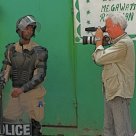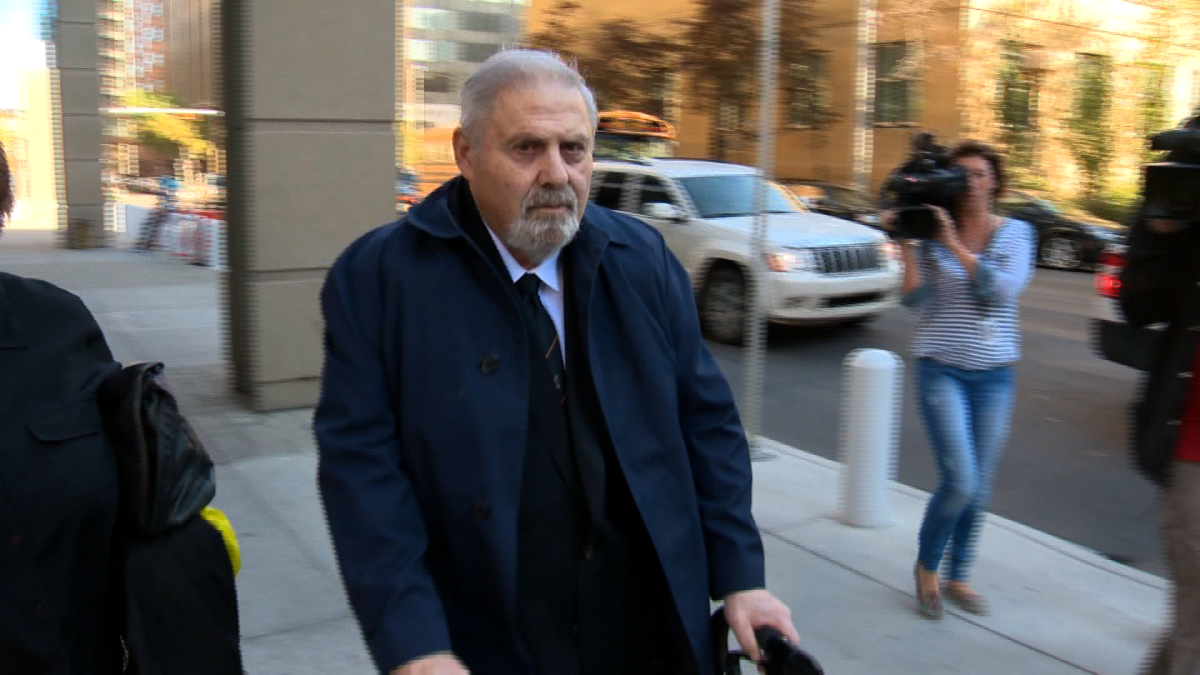For the men and women of the Greefswald Facebook page, it seemed like justice would never come. . . They’d been waiting 40 years and more—exchanging their stories, nursing their grievances, consoling one another, wondering if they would ever find resolution. Most of them were still teenagers when they say they were traumatized in South Africa. The focus of their anger was Aubrey Levin, and the effect he had on their younger years. But the world had moved on, now they had children and grandchildren. Still, they say they bore the psychic scars.

When I reached Benjamin James in Australia, we’d barely begun to talk when he started to sob into the phone. In Denmark, Gerald Proctor, a political refugee, used the word “torture” to describe what had happened to him. In Johannesburg, Shawn Driman wrote on Facebook: “When I see the face we dealt with at the time, a great wave of nausea hits me.” Another Facebook contributor said: “There is no excuse for inhumanity in the name of science.”
The “face” Driman is talking about is that of a man who was sitting in a Calgary courtroom, fighting charges of sexual assault: Dr. Aubrey Levin, 74 years ago, a respected forensic psychiatrist who had been secretly videotaped touching one of his patients. Levin told police he was testing the patient for erectile dysfunction. Last January, a jury found Levin guilty on three charges, not guilty on two counts, and a judge sentenced him to five years in prison—a sentence Levin is appealing.
- Posters promoting ‘Steal From Loblaws Day’ are circulating. How did we get here?
- Video shows Ontario police sharing Trudeau’s location with protester, investigation launched
- Canadian food banks are on the brink: ‘This is not a sustainable situation’
- Solar eclipse eye damage: More than 160 cases reported in Ontario, Quebec
The people on the Greefswald Facebook page did not play a role in Levin’s trial. They gave no evidence; made no allegations. But, from afar and through social media, they followed every twist and turn of the trial over four months, and when the jury brought in a guilty verdict last January, they were overjoyed.
“Canada has done us a massive favor,” said Gordon Torr in Wimbledon, England, whose memory of Levin is still vivid after 40 years. He said Levin’s conviction would help “remove the shackles of silence” from the men and women who encountered Levin while they served in the South African Defence Force decades ago, under apartheid. Now, he said, their stories could emerge.
Greefswald was the name of a military detention camp in South Africa during the turbulent apartheid years—a place where young conscripts were sent if they were judged to be “deviant.” You got that label if you were gay, smoked marijuana, or were a conscientious objector. Gordon Torr called it an “experimental gulag” meant to turn “psychos, sub-normals and deviants” into fighting men. The presiding psychiatrist was Dr. Aubrey Levin, who flew in several times a year by helicopter from Pretoria to see how the therapy was going.
Gerald Proctor says the idea was to turn the conscripts, many of them still teen-agers, into “usable cannon fodder.” To that end, says Proctor, they were subjected to sleep deprivation, forced to train in double time, and given extreme punishments. “Total isolation, complete domination, no accountability” is how he describes it. Proctor later fled to Denmark, where he was accepted as a refugee.
Greefswald was much more than a boot camp. One inmate remembers being kicked and beaten by 200 of his colleagues for a misdemeanor—the men were told that if they didn’t dole out their rough punishment, they would lose their own privileges. Dewan McGregor lost a brother, Stuart, aged 18, in Greefswald—killed in a mysterious shooting incident that was never fully explained to the family. His belongings were sent back in a tomato box. There were whispers of suicide that the SADF would not address.
Inmates called Greefswald “The Vault” and the focus of their vitriol was Levin, nicknamed “Bubbles” for his girth, and his apparent addiction to chocolate bon bons. He represented brutal authority to the young men.
Levin became something of a legend. It was said (and later confirmed) that his trademark therapy for gays and some “dagga” (marijuana) users was aversion therapy—an anodyne term for electro-shock, which was administered at a military hospital in Pretoria. Levin insisted this treatment was mild, medically justified, widely practiced at the time and always came with a consent form. But at least one victim disagreed: conscript Michael Smith said the therapy was sometimes very painful, it didn’t work, and if you didn’t consent, Levin would threaten to send you to Greefswald. Smith says he remembers seeing conscripts coming back from Greefswald looking like “vegetables,” with stories of suffering and horror and deprivation.
Levin was never required to answer the allegations in South Africa, and he emigrated to Canada after apartheid ended. He refused a request to come back to testify at the country’s Truth and Reconciliation Commission.
His accusers on the Greefswald Facebook page wonder how Levin was admitted into Canada so easily, given his background, and given the fact that the Alberta College and Physicians and Surgeons was reportedly warned about his controversial past in South Africa in a letter sent by a group of human rights activists in the late 1990s.
Some of them feel Levin’s sentence of 5 years’ imprisonment is too light.
Says Shawn Driman: “I would prefer him to remain out of society until he dies.”
Levin will be appealing his conviction next fall, and a re-trial of three cases on which the jury could not agree, is expected to begin in early 2014. Meanwhile, he is free on bail.


Comments